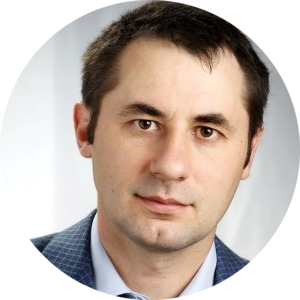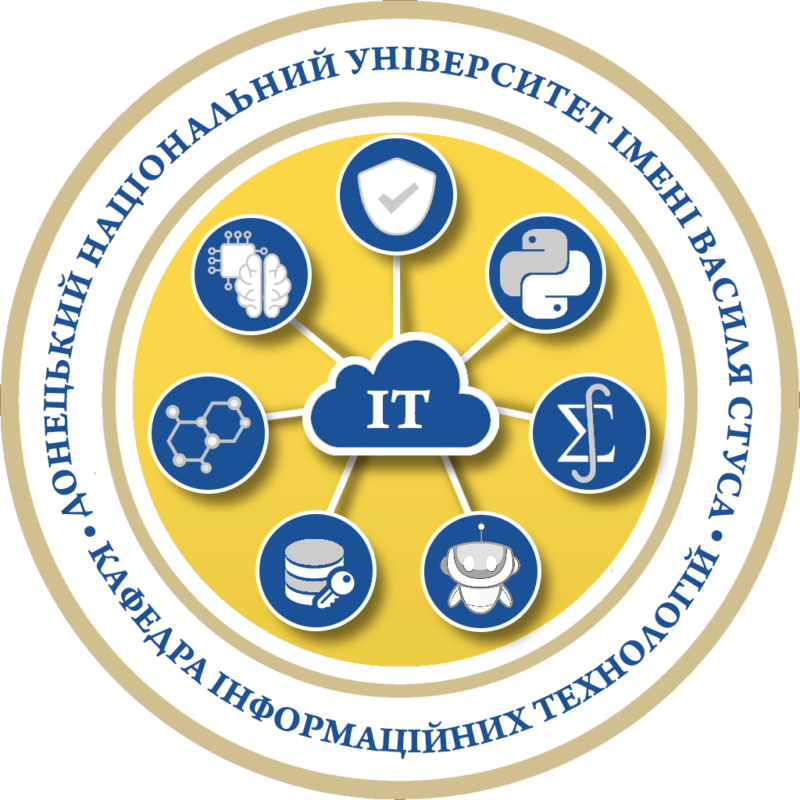
Sergiy Shtovba
Doctor of Technical Sciences, Professor, Professor of the Department of Information Technologies
ORCID: orcid.org>>
Google scholar: scholar.google.com>>
Web of Science: publons.com>>
Scopus: www.scopus.com>>
1993, electronics engineer-designer-technologist. Graduated with honors from Vinnytsia Polytechnic Institute with a degree in Design and Technology of Electronic Computers.
1997, Candidate of Technical Sciences, specializing in Mathematical Modeling in Scientific Research;
2001, “Complex Systems Summer School”, Santa Fe Institute and Central European University, Budapest, Hungary, 4 weeks;
2002, Associate Professor of the Department of Computer Control Systems;
2005, ICCL Summer School “Logic-Based Knowledge Representation”, Technical University of Dresden, Germany, 2 weeks;
2006, ICCL Summer School “Knowledge Structures”, Technical University of Dresden, Germany, 2 weeks;
2010, Doctor of Technical Sciences in Information Technology;
2011, Professor of the Department of Computer Control Systems;
2015, internship under the Erasmus Mundus program, Backis project, University of Montpellier and the Research Institute of Agronomy and Environment (Irstea Montpellier), France, 1 month;
2015, ICCL Summer School “Reasoning”, Technical University of Dresden, Germany, 2 weeks;
Since 2020, Professor of the Department of Computer Science and Information Technology, Vasyl’ Stus Donetsk National University. Career at Vinnytsia National Technical University: Professor (2007), Doctoral student (2003), Associate Professor (2001), Senior Lecturer (1998), Deputy Dean (1997), Junior Researcher (1996), PhD student (1993).
Teaches disciplines: Methods of artificial intelligence, Fuzzy sets and systems, Methodology and organization of scientific research, Data analysis.
Main directions of scientific research:
application of intelligent technologies (fuzzy logic, genetic and ant algorithms, swarm intelligence methods) to solve applied problems in the following areas:
-
- assessment and ensuring the reliability and quality of human-machine systems;
- technical, medical and educational diagnostics;
- expert systems and decision support systems;
- optimization on graphs;
- detection of patterns in experimental data;
- scientometrics.
Scientific adviser of the following state budget and contractual topics:
-
- 2017-2019, Identification of hidden dependencies in online social networks based on fuzzy logic and computational linguistics methods;
- 2015, Information technology of multi-criteria synthesis of fuzzy knowledge bases;
- 2013, Forecasting of natural gas consumption by individual subscribers.
- 2011-2013, Identification of multifactor dependencies based on hybrid fuzzy models.
Professional activity:
-
- Member of the Special Council D 05.052.01 for the defense of doctoral dissertations in the specialty 05.13.06 “Information Technology” (since 2010);
- member of the sectoral expert council “Information Technologies” of NAQA (2019-2020);
- member of the editorial boards of the scientific journals “Bulletin of Vinnytsia Polytechnic Institute” (since 2010), “Neuro-fuzzy modeling technologies in economics” (since 2012) and “Exponenta Pro: Mathematics in Applications” (2002 – 2003);
- host of the Fuzzy Logic Toolbox section on www.matlab.ru and www.matlab.exponenta.ru (2003 – 2008), SoftLine.
Awards:
-
- “Excellence in Education of Ukraine” sign, 2017;
- Grant of the President of Ukraine for Doctors of Sciences under the age of 45, 2015;
- Laureate of the Scholarship of the Cabinet of Ministers of Ukraine for Young Scientists (2003 – 2005 and 1995 – 1997);
- Diplomas of the Ministry of Education and Science of Ukraine for the excellent organization of the second round of the All-Ukrainian Student Olympiad in the specialty “Control and Automation Systems” (2002, 2001, 2000).
Author of more than 170 publications, including: 3 monographs, 7 textbooks, more than 130 articles, 23 articles in the Scopus database.

